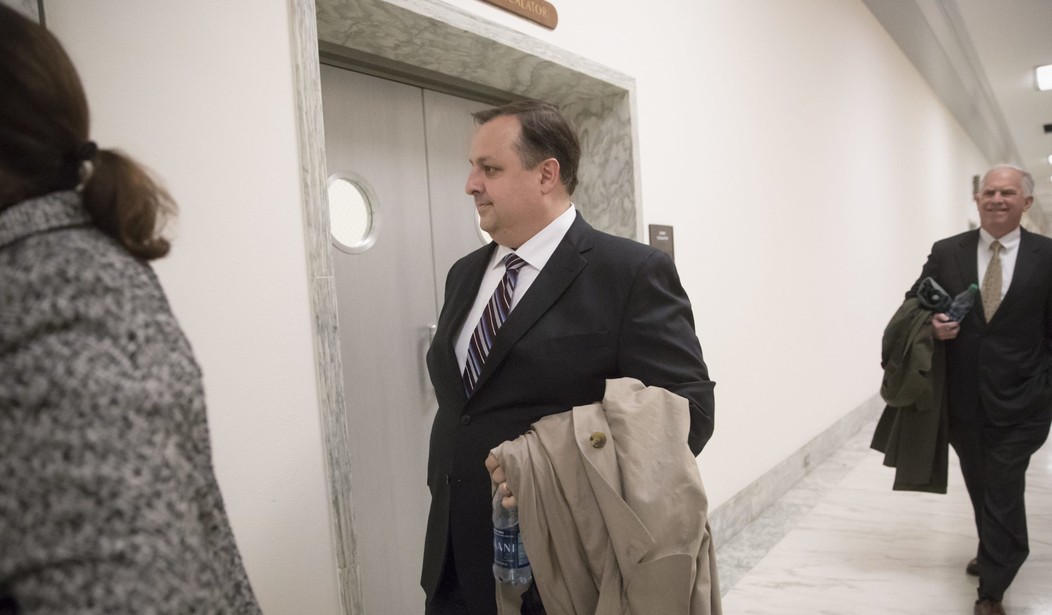WASHINGTON — The head of the Office of Government Ethics announced his resignation today after months of disagreements with the White House over ethics waivers for appointees and Walter Shaub’s insistence that President Trump divest from his businesses.
Shaub’s short letter to Trump says he will step down July 19, even though the top watchdog’s term doesn’t expire until January.
“The great privilege and honor of my career has been to lead OGE’s staff and the community of ethics officials in the federal executive branch,” he wrote. “They are committed to protecting the principle that public service is a public trust, requiring employees to place loyalty to the Constitution, the laws, and ethical principles above private gain.”
“I am grateful for the efforts of this dedicated and patriotic assembly of public servants, and I am proud to have served with them,” he added.
Shaub, who was appointed to his five-year term in 2013, will join the Campaign Legal Center as senior director of ethics on the day he steps down from the OGE.
“I have had the honor and privilege of serving the American public at the U.S. Office of Government Ethics under three presidents – George W. Bush, Barack Obama and Donald Trump,” Shaub said in a statement released by the CLC. “In working with the current administration, it has become clear to me that we need improvements to the existing ethics program. I look forward to working toward that aim at Campaign Legal Center, as well as working on ethics reforms at all levels of government.”
Shaub told NPR this morning that “the current situation has made it clear that the ethics program needs to be stronger than it is.”
Shortly before the inauguration, Shaub called Trump’s plan to deal with his business holdings “wholly inadequate.”
In a mid-January speech at the Brookings Institute, Shaub said Trump’s plan “does not achieve anything like the clean break Rex Tillerson is making from Exxon.”
“Stepping back from running his business is meaningless from a conflict of interest perspective,” Shaub said. “The presidency is a full-time job and he would’ve had to step back anyway. The idea of setting up a trust to hold his operating businesses adds nothing to the equation. This is not a blind trust — it’s not even close.”
“…His sons are still running the businesses, and, of course, he knows what he owns. His own attorney said today that he can’t ‘un-know’ that he owns Trump tower. The same is true of his other holdings. The idea of limiting direct communication about the business is wholly inadequate. That’s not how a blind trust works. There’s not supposed to be any information at all.”
Shaub added he was “especially troubled by the statement that the incoming administration is going to demand that OGE approve a diversified portfolio of assets.”
“No one has ever talked to us about that idea, and there’s no legal mechanism to do that.” he said. “Instead, Congress set up OGE’s blind trust program under the Ethics in Government Act. Under that law anyone who wants a blind trust has to work with OGE from the start, but OGE has been left out of this process. We would have told them that this arrangement fails to meet the statutory requirements.”
“To be clear,” Shaub stressed, “OGE’s primary recommendation is that he divest his conflicting financial interests. Nothing short of divestiture will resolve these conflicts.”
Shaub followed up by posting “A Refresher on Misuse of Position” on the OGE website, detailing the standards of ethical conduct for executive branch employees.









Join the conversation as a VIP Member